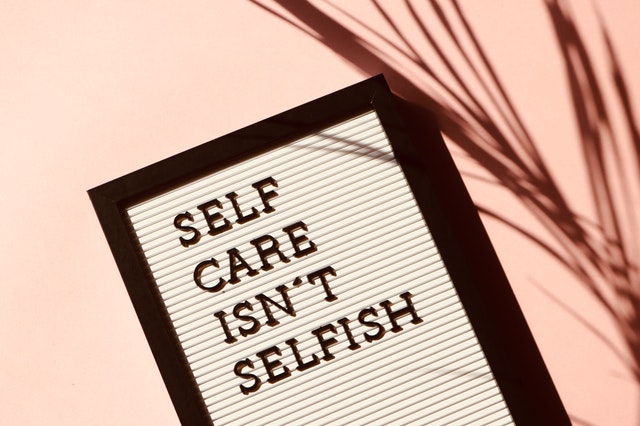Big challenge
‘I go absolutely nuts sometimes’, said my client Sarah frustrated, while she looked at me from my computer screen desperately. ‘It’s a lot all together with the online learning of the children at home all day, my actual job added to it, let alone housekeeping. On top of that, my mom calls me every night before I go to bed, and then I spend an hour thinking about her problems of which I don’t know how to solve them either. But you know, it’s not easy for her either.’
The world during the pandemic with all its restrictions, unusual rules and big changes at home, social life and at work, is a big challenge and the covid fatigue seems to affect many of us.
For the people pleasers among us, this covid-era can become a huge challenge. People pleasers want everyone around them to be happy, so they try to cater to everyone’s needs by supporting them, finding solutions for them, and often struggle with saying ‘no.’
When you’re always ‘ON’
People-pleasing can stem from the need for external validation. It often has a deep connection to the past, usually childhood, during which your sense of safety and self-esteem have been at risk, slowly disappeared or never were there at all.
Experiences like that can create behavioral responses like bending over backwards to meet other people’s needs. The appreciation you receive for your support gives you a feeling of being loved or liked, which serves as an incentive to keep on giving. People-pleasing can therefore be addictive and make you lose a sense of control over several things such as what you focus your energy on and how you feel about yourself.
Because you so easily spot other people’s needs (because of your highly sensitive radar) it can feel as if you are always ‘on’ when a lot of people around you are experiencing stress like right now during the pandemic. This can result in having too much on your plate, leading to feelings of unhappiness, loneliness, frustration, sadness, lacking the needed support and feeling short of healthy and positive attention for yourself. When you’re always busy meeting other people’s needs it can be very hard to set boundaries, take good care of yourself and connect with yourself.
I looked at Sarah on my screen. ‘Which boundary is your mom crossing?’ I asked her. She gave it some thought and said: ’That I need peace and quiet at night before I sleep. If I don’t sleep well, I can’t deal with the day ahead of me.’ We all understand that, of course.
Below are six tips for people pleasers that help you to protect yourself in a healthy way and to help you stay true to yourself.

Table of Contents
1. Saying no
Saying no can be incredibly hard when you’re a people pleaser: You don’t want to come across as unkind or unhelpful and you might be worried that a ‘no’ will affect your relationships. If you give that a serious second thought however, you will probably come to the conclusion that a healthy relationship should not be based on you saying ‘yes.’
If you give that a serious second thought however, you will probably come to the conclusion that a healthy relationship should not be based on you saying ‘yes.’ A healthy relationship, with whomever, is reciprocal and allows you the space to be who you are without judgement when you say ‘no’ to something.
To practice saying no you can start with something very simple. Make sure you have pen and paper at hand the next few days. On one side of the paper you write ‘YES’ and on the other side you write ‘NO.’ Every time you say yes to something, you make a dot on the ‘YES’ side. If you say no, mark the ‘NO’ side. This will help you become aware of the moments you say yes and no, and why. There’s a big chance that after doing this for a few days, you’ll notice that you start thinking more critical about saying yes or no. You can start practicing saying NO!
If you really find it hard to say no, you can start with something along the lines of: ‘I’m very busy at the moment, so I’ll get back to you later.’ This way, you don’t immediately say no and you give yourself the chance to really think it through and come back with an answer you fully support.

2. Setting boundaries
Setting boundaries, what’s that?! Setting boundaries is a BIG ONE for people pleasers! A hard truth: if people cross your boundaries, they do so because you let them. If you want people to stop crossing your boundaries, the solution is that you no longer tolerate them doing so.
Recognize a crossed boundary: Write down in which situations you feel like your boundaries are being crossed. You can often recognize this by paying attention to your emotions: when you feel angry, sad, helpless, or exhausted this could indicate your boundaries being crossed. An example from Sarah: my mom calls me late at night with a long list of problems right before I go to sleep. After that, my mom goes to sleep while I’m lying awake for at least an hour thinking about her problems and how to solve them. Emotion: anger and stress.
Describe your boundary: Ask yourself which boundary is being crossed and what the consequence of it is. An example from Sarah: I would like a calm and peaceful atmosphere before I go to sleep. A peaceful mind. Consequence of that boundary not being respected: because my boundary is being crossed, I have so many thoughts before I go to sleep. I feel angry that my mom is calling me this late and thoughts about how I can help her make me feel stressed.
Formulate how to set your boundary: Write down which boundary you’d like to set for a certain person. Set the boundary from how you experience the situation, not by pointing fingers. Example: When we call late at night right before I sleep, I feel stressed and restless, which makes it hard to fall sleep. I would prefer calling at a different time, maybe around eight.
Set your boundary: Practice setting your boundary by saying it out loud a few times when you’re alone. Now be brave and set your boundary! You’ve got this! (tip: choose a calm moment so you don’t have to set your boundary in the heat of the moment!). Example: Sarah called her mom the next morning and discussed her boundary with her. At first, her mom responded a little upset, but she also understood that Sarah was very busy and needed some peace and quiet at night. They settled for calling before half pas eight, unless it concerned an emergency. Sarah felt very relieved after the conversation with her mom and even wondered why she didn’t set it before!
Setting boundaries might not only be new to you, but also to the people around you. That might mean that you have to set your boundaries multiple times before it becomes a habit for you and others. Be patient with yourself and remind yourself that all changes in life usually come with some sort of tension, and that’s okay! If it makes you feel nervous and the people around you don’t know how to deal with your new boundaries, it’s just a sign that you’ve put change in motion! To get more insight in what your current boundaries are like and what kind of boundaries you’d like to set in which situation, you can download the Ideal Boundaries Tool here for free.

3. Take care of yourself
If you gave yourself all the love, support and attention that you give to others, what would you do differently? That’s a question you could ask yourself to start exploring self-care. People pleasers are often very good at putting their own wellbeing at the bottom of the list of priorities. But what would change if you put self-care on top of the list as Priority Number One? Self-care is not something you do when everything is done. Self-care is HOW you do EVERYTHING.
Other questions to ask yourself: What are the things that make me happy? How can I consciously create more of that in my daily life? What are little things I can do every day to support my wellbeing?

4. Ask yourself whether you’re being ‘used’
People pleasers often end up in relationships with certain patterns.
One of those patterns can be that your relationships are based on you as ‘caregiver’, and that others are misusing your natural gift of caring for them. Often times that means that the other person ends up in a role of being the victim and that they stay in that role as long as you take care of them. In other words, the other person is in the relationship to use what you have to offer and not because of mutual friendship.
It can help tremendously to write down the names of the people around you and wonder what your gut feeling tells you about the nature of your relationship with that person. When you have more insight into it, the previous tips can help you change the dynamics.

5. Replace sorry with thank you
People pleasers are often great at saying sorry. Sorry for this, sorry for that. An interesting way to look at it is that when you say ‘sorry’, it’s mainly about your feelings of guilt. When you replace sorry with thank you, you shift the attention from you to the other. Secondly, you shift from a feeling of guilt to a feeling of gratitude. Especially the latter can be a relief for people pleasers because they know like no other what it’s like to feel guilty about everything.
Example:
I’m sorry I’m late – Thank you for waiting for me.
I’m sorry for talking so much – Thank you for listening to me.
I’m sorry for being so busy – Thank you for understanding my situation.
How different does that feel?

6. Celebrate when you succeed!
Developing new habits in life isn’t always easy because your brain has to create new thought patterns to break through the old ones. That usually takes some time! Be kind to yourself if it doesn’t work out the first time and remember, practice makes perfect! You can support your own process of change by consciously celebrating the moments you succeeded by doing something nice for yourself.
Finally… there’s nothing wrong with helping others and wanting to be there for them. What’s important is to learn to differentiate between a healthy way of helping others and unhealthy people pleasing. The exercises above can help you to gain more clarity about yourself and the world around you, so you can live life from a place of self-love too.

